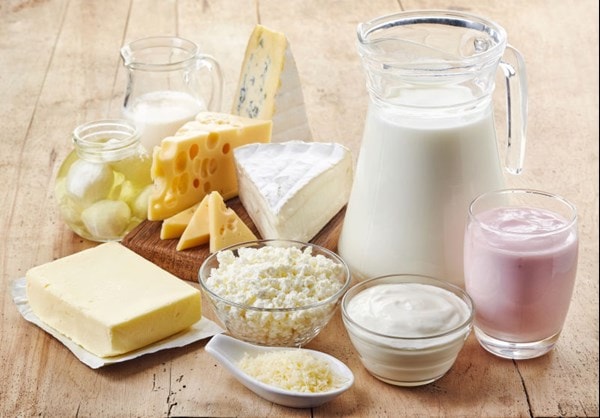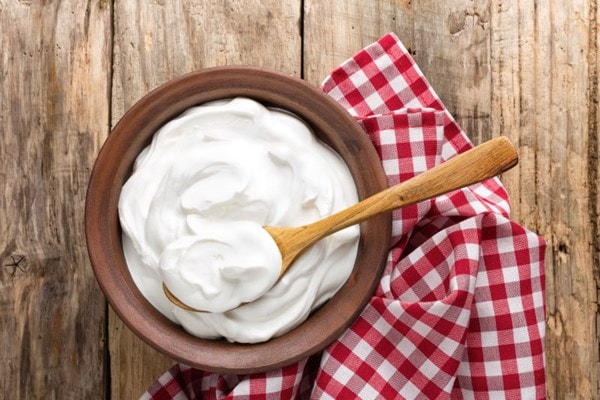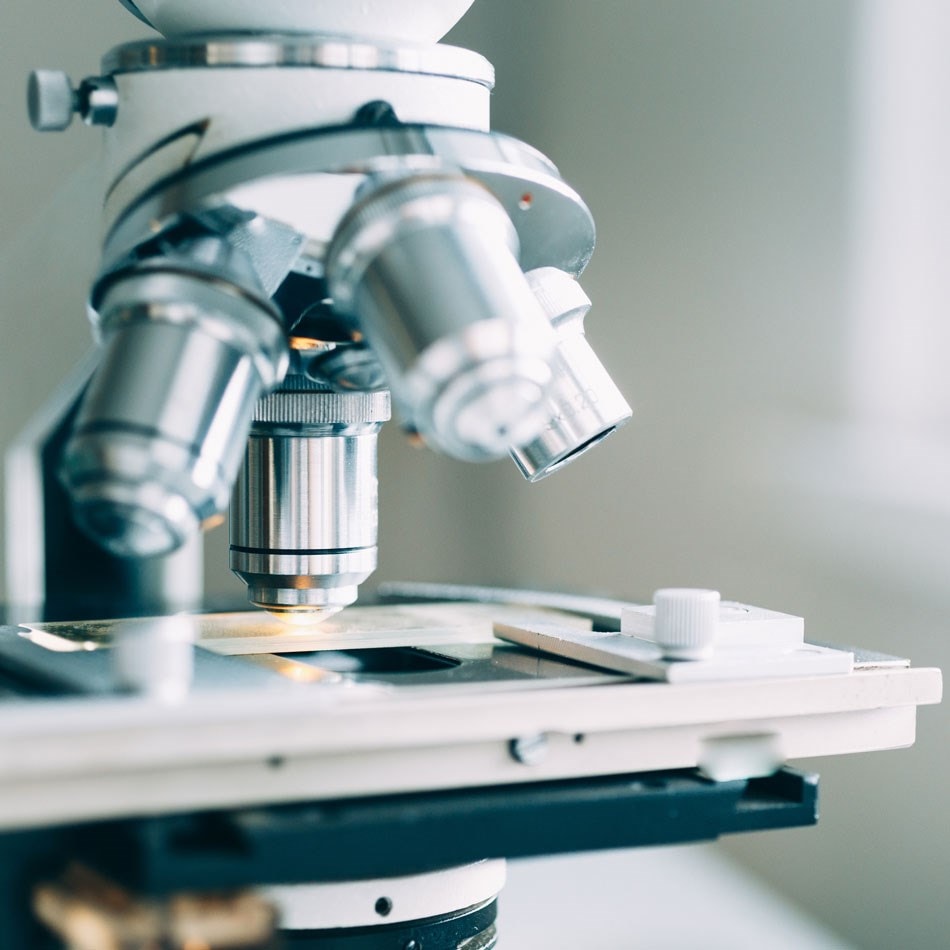Probiotics and Lactose Intolerance
What is lactose intolerance?
Lactose intolerance is the inability of the body to digest lactose, which is a type of natural sugar found in milk and dairy products. In order for lactose to be absorbed easily into the bloodstream, it is broken down into two monosaccharides - glucose and galactose - in the small intestine by an enzyme known as lactase.

When there isn’t enough lactase to break down lactose in the small intestines, the undigested lactose moves into the colon (large intestine) where it is metabolised by bacteria. This metabolic process leads to the production of short-chain fatty acids and gases like hydrogen, carbon dioxide, and methane. This could explain some of the gastrointestinal symptoms lactose intolerant individual’s experience, such as flatulence, bloating and stomach cramps 1. Undigested lactose also promotes increased acidity in the colon and increases osmotic pressure, which could cause diarrhoea 1, 2.
In terms of how long it takes for lactose to get out of the system and how long the symptoms last, it varies from person to person depending on different factors like the amount of lactose ingested and gastric emptying time 2.
Is it possible to become lactose intolerant over time?
A lot of people ask the question, ‘is it possible to become lactose intolerant over time?’, and the answer is yes: lactose intolerance can be developed at any point in life 2.
Most individuals are born with the ability to digest lactose as lactase activity is highest during the first years of life; however, lactase activity is known to decrease with time. This is known as primary lactase deficiency/non-persistence. This form of lactase deficiency is thought to be genetically programmed and age-related as the gene that is responsible for the production of lactase (LCT gene), becomes dormant progressively with time. It tends to appear between the ages of 5-20 years 1, 3.
Damage to the small intestine where lactase is produced could also lead to a form of lactase deficiency called secondary lactase deficiency. This damage can occur as a result of gastroenteritis, IBD, infections, and malnutrition.
Some individuals wonder if lactose intolerance can go away and if you can fix or cure it. Well, it really depends on the cause of the lactose intolerance. Primary lactase deficiency/non-persistence is genetically programmed and the decline in lactase activity can't be reversed, so at the moment there is no cure for this. However, secondary lactase deficiency brought on by damage to the small intestine could sometimes be reversed. Treating the damage to the small intestine could improve tolerance to lactose when the intestinal wall heals 3. For these individuals, their lactose intolerance could very well improve with time.

Individuals with lactose intolerance may need to avoid foods that contain a high amount of lactose, such as cow’s milk, cheese, and other processed foods containing milk or milk derivatives like whey powder. That being said, it’s not always necessary to completely cut out lactose from the diet even after diagnosis, as each individual with will have a certain amount of lactose/dairy products that they can tolerate without experiencing symptoms. So, with careful monitoring, individuals can identify the types of dairy products and amount of lactose they can tolerate. A number of studies have also found that having dairy products like milk with meals could also reduce the chances of experiencing symptoms after consumption 4, or choose fermented dairy products - see below for more about these and why they may be better for you if you struggle to eat dairy.
It's worth mentioning that eggs are not dairy products and do not contain lactose; however, they are often used together with dairy products in many foods, so it’s still worth paying attention to food labels of foods products that are egg-based as there might be some dairy ingredients present.
Probiotics and lactose intolerance - are they helpful?
This is a question that I'm asked frequently, and I say that the evidence seems to suggest that probiotics may well be helpful! Each individual will have their own level of dairy tolerance, and the composition of our gut microflora is unique to each individual, but a number of studies have found that probiotics in yogurt drinks and non-dairy probiotic supplements could help aid the digestion of lactose 5.

Fermented dairy products containing live cultures are often better tolerated by lactose-intolerant people, and a number of studies have found that these individuals respond better to yogurts than milk with the same amount of lactose. One explanation for this is that fermented foods can delay gastric emptying, which means lactose can sit a while longer in the small intestine and more lactose can be broken down before it moves into the colon 5. But it's also the action of probiotics that can explain why fermented dairy products are easier to digest: fermentation with live bacteria results in a unique form of lactose which is easier to digest, 3 and many probiotic bacterial strains also produce beta-galactosidase, an enzyme that acts like lactase and can help to break down lactose 6 in the gut.
So, if you are lactose intolerant, it's definitely worth considering probiotics and fermented foods as part of your health regime. But are there some strains of probiotic which are better than others for lactose intolerance?
Best probiotic for lactose intolerance
One study by He et al (2007) assessed the effects of probiotic supplementation on the colonic microbiota of lactose intolerant participants. They found that after just two weeks of supplementing with a yogurt (with added Bifidobacterium animalis) and a supplement containing Bifidobacterium longum, metabolic activity in the colon and lactose intolerance improved. Faecal β-galactosidase activity also increased after the 2-week supplementation 1. Colonic metabolism plays an important role in lactose intolerance so adding a probiotic supplement, or foods containing live cultures, to the diet could help with balancing the microbiota and improvements in lactose intolerance and digestion 3, 5, 7.
Another study found that supplementing with two strains, Lactobacillus rhamnosus Rosell-11 and Lactobacillus acidophilus Rosell-52, improved tolerance to dairy and the stool consistency of the subjects 8.
A fairly recent double-blind placebo control trial assessed the effect of Lactobacillus acidophilus DDS-1 on alleviating lactose intolerance symptoms like diarrhoea, vomiting, flatulence and abdominal cramps. The study involved 38 participants with lactose intolerance and they all got a chance to take the placebo and the probiotic supplement containing 10 billion CFUs of Lactobacillus acidophilus DDS-1 as it was a 2-arm crossover study. They found a statistically significant improvement in diarrhoea, abdominal cramps, vomiting and overall symptom scores compared to the placebo group 7.
Other strains like Lactobacillus acidophilus LA-05®, Lactobacillus acidophilus NCFM®, Bifidobacterium lactis BB-12®, have also been found in various studies to have helped with improving symptoms and tolerance to dairy products during supplementation period 8, 9, 10.
What does the NHS say about probiotics for symptom support?
The NHS acknowledges that certain types of probiotics like Lactobacillus acidophilus could help with the reduction of lactose intolerance symptoms. They recommend trying non-yogurt probiotics that contain L. acidophilus 11. Overall, there are many different strains that have been comprehensively researched for support with symptoms like diarrhoea, bloating, flatulence and gas and it’s certainly worth trying probiotics for symptom support.
So, if you struggle with lactose intolerance, why not try probiotics? They're safe and natural, and you can choose specific strains which are more likely to offer you some support.
Take a look at the following for more relevant information:
Probiotics database: strains researched for lactose intolerance
References
- Y. Deng, B. Misselwitz, N. Dai and M. Fox, “Lactose Intolerance in Adults: Biological Mechanism and Dietary Management,” Nutrients, vol. 7, no. 12, pp. 8020-8035, 2015.
- R. Mattar, D. F. d. C. Mazo and F. J. Carrilho, “Lactose intolerance: diagnosis, genetic, and clinical factors,” Clinical and Experimental Gastroenterology, pp. 113-121, 2012.
- British Nutrition Foundation, “British Nutrition Foundation,” 2009. [Online]. Available: https://www.nutrition.org.uk/nutritionscience/allergy/lactose-intolerance.html?limit=1&start=1. [Accessed 20 February 2018].
- A. Shaukat, M. D. Levitt, B. C. Taylor, R. MacDonald, T. A. Shamliyan, R. L. Kane and T. J. Wilt, “Systematic Review: Effective Management Strategies for Lactose Intolerance,” Annals of Internal Medicine, vol. 152, no. 12, p. 797, 2010.
- T. He, M. G. Priebe, Y. Zhong, C. Huang, H. J. Harmsen, G. C. Raangs, J. M. Antoine, G. W. Welling and R. J. Vonk, “Effects of yogurt and bifidobacteria supplementation on the colonic microbiota in lactose-intolerant subjects,” Journal of Applied Microbiology, vol. 2, no. 104, pp. 595 - 604, 2007.
- D. H. Juers, B. W. Matthews and R. E. Huber, “LacZ β-galactosidase: Structure and function of an enzyme of historical and molecular biological importance,” Protein Science, vol. 21, no. 12, pp. 1792-1807, 2012.
- M. N. Pakdaman, J. K. Udani, P. M. Jhanna and S. Michael , “The effects of the DDS-1 strain of lactobacillus on symptomatic relief for lactose intolerance - a randomized, double-blind, placebo-controlled, crossover clinical trial,” Nutrition Journal, vol. 15, no. 1, pp. 1-11, 2016.
- J. Kocián, “Lactobacilli in the treatment of dyspepsia due to dysmicrobia of various causes,” vol. 40, no. (c2):S, pp. 79-83, 1994.
- R. G. Montes, T. M. Bayless, J. M. Saavedra and J. A. Perman, “Effect of Milks Inoculated with Lactobacillus acidophilus or a Yogurt Starter,” Journal of Dairy Science, vol. 78, no. 8, pp. 1657-1664, 1995.
- Virta, P., et al, “The effect of a preparation containing freeze-dried lactic acid bacteria on lactose intolerance,” 1993.
- NHS, “NHS Choices,” 2016. [Online]. Available: https://www.nhs.uk/conditions/probiotics/. [Accessed 16 February 2018].


